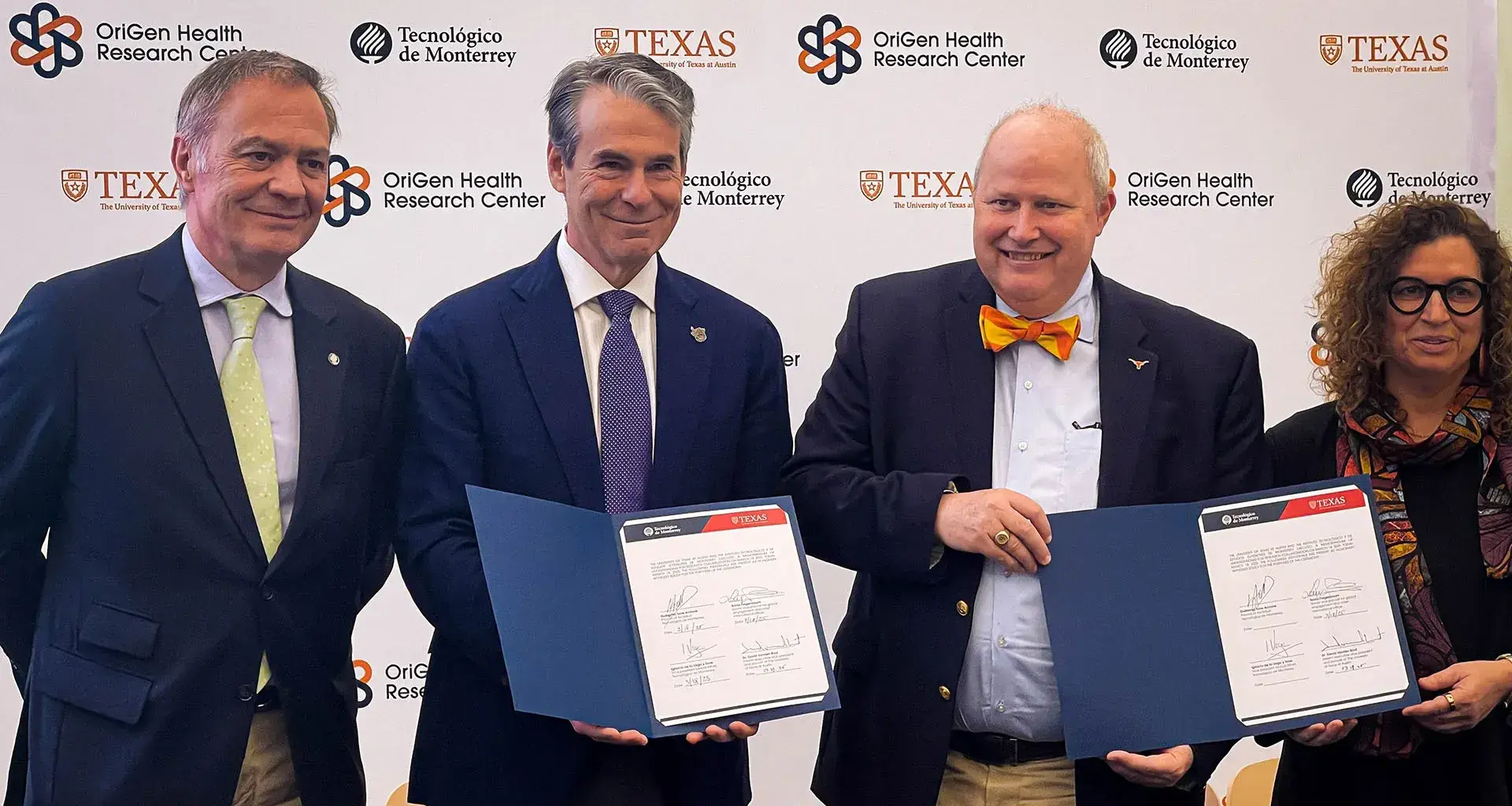Tec de Monterrey and the University of Texas at Austin have announced the creation of the OriGen Health Research Center, a center designed to improve the health of the Latino population through advanced research, education, and community outreach.
The center, which will be located in Austin, Texas, seeks to promote precision medicine and improve health outcomes for Latinos living in Latin America and the United States through the oriGen project’s biobank and artificial intelligence.
This is the first time the Tec will have a research center in the United States, in partnership with one of the world’s leading universities, said David Garza, Executive President of the Tecnológico de Monterrey Education Group.
Garza added that this lines up with their aim to strengthen the institution’s global prestige, centered on academic excellence through applied research and innovation, as well as promote TecSalud as a leading academic health center.
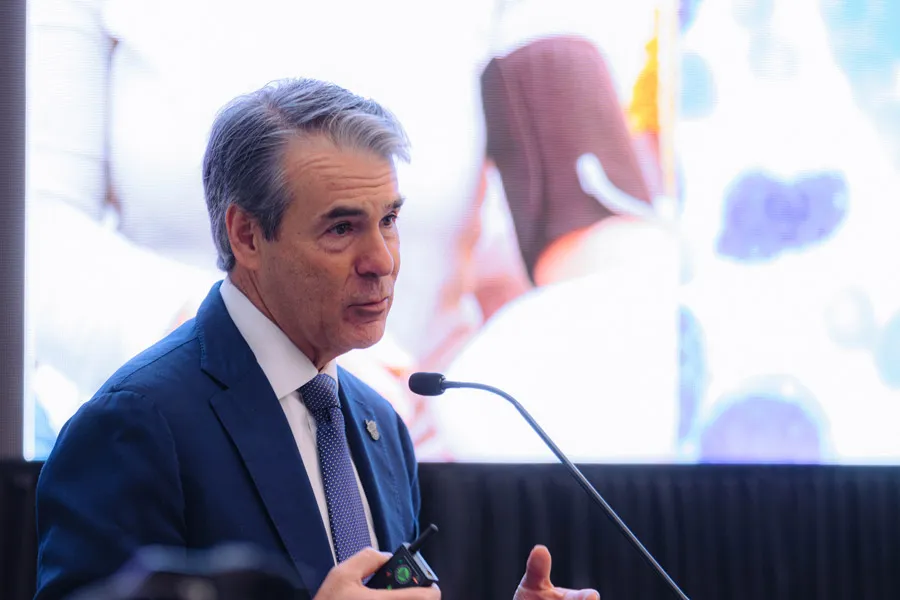
The signing ceremony was held at EXPEDITION FEMSA, in the Monterrey Innovation District, with the participation of:
* Guillermo Torre: Rector of TecSalud
* Ignacio de la Vega, Executive Vice Rector of Academic Affairs, Faculty, and Internationalization at the Tec
* David Vanden Bout, Interim Executive Vice President and Provost of the University of Texas at Austin
* Sonia Feigenbaum: Senior Vice Provost for Global Engagement and Chief International Officer at the University of Texas at Austin
“The purpose of the oriGen Project is to collect bioclinical information and statistics from a large population of Mexicans in order to represent the entire country,” said Guillermo Torre, Rector of TecSalud.
“This is a joint effort between the Tec and the University of Texas at Austin to provide practical solutions to the main health issues and contribute to the understanding of unique diseases that affect specific populations,” he added.
This center’s importance
Latino communities are facing disproportionately high rates of diseases such as diabetes, obesity, cardiovascular diseases, and certain types of cancer.
There is currently a dearth of scientific studies that consider the specific characteristics of this population.
Having a center that specializes in researching these conditions will enable it to generate specific studies and data to better understand how and why these diseases uniquely affect the Latino community.
This will facilitate the development of more effective solutions and personalized treatments that respond to their particular needs.
Vanden Bout said that the connection between these two universities comes at a vital moment for advancing the healthcare of people who live throughout the Americas.
“Nowadays, we have patients with diabetes, heart disease, and many types of cancer, receiving treatments and assessment solely based on an incomplete picture.
“What’s been missing is full understanding of the reasons why certain conditions occur more frequently in one population than in another,” he said.
The goal of having a specialized center is to enable the generation of data and studies to understand how these diseases affect the Latino community and thereby develop effective solutions and personalized treatments.
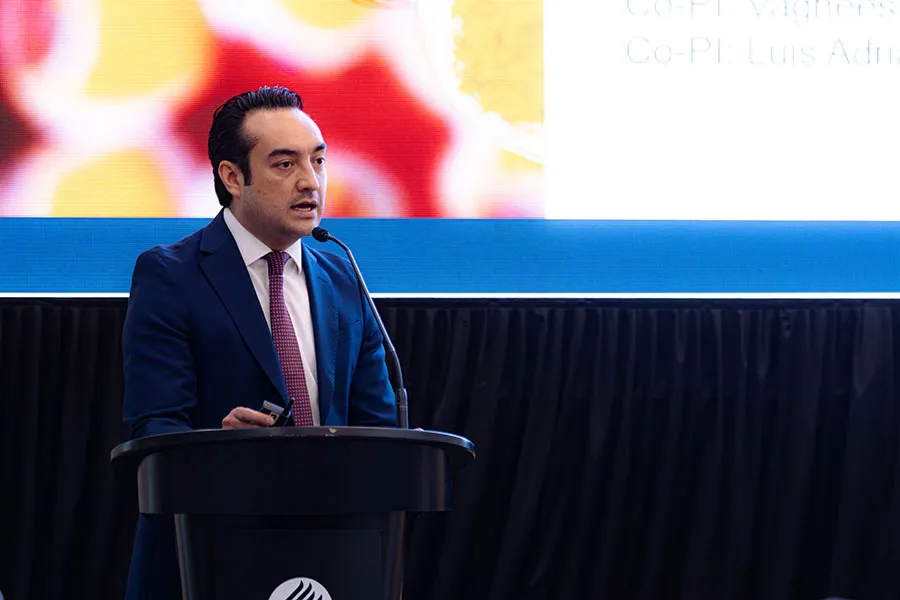
This agreement fosters the exchange of knowledge and abilities between researchers, which strengthens skills development and enables the academic and scientific growth of both universities.
What’s more, by joining forces and sharing perspectives, both institutions promote innovation, encouraging solutions to major social and economic issues that affect both the Latino community in the United States and global society.
“I believe this is a very concrete project that is associated with this goal of transforming people’s lives through new treatments that we hope to find and new medicines that we will find.
“It will also transform communities because we know all the challenges that the population’s health represents to governments and the private sector,” said David Garza, Executive President of the Tecnológico de Monterrey Education Group.
The OriGen Health Research Center will focus on three areas:
- Research
Projects will be carried out on the differences in diabetes, obesity, cardiovascular diseases, and certain types of cancer in the Latino population of Mexico and the United States, utilizing information from the oriGen project and Artificial Intelligence.
- Education
There will be programs and workshops aimed at the scientific community and campaigns for the Latino population in the United States.
- Outreach
This will ensure spaces for connection and liaison between the ecosystem’s different stakeholders to address the specific needs of Latino communities.
“This is a very concrete project that is associated with this goal of transforming people’s lives through new treatments that we hope to find and new medicines that we will find.” - David Garza
First projects
At the launch of the OriGen Health Research Center, doctors Alexandro Martagón and Gabriela Livas, co-directors of the OriGen Health Research Center from the Tec and University of Texas at Austin, respectively, shared their first projects.
These projects are based on scientific questions to be answered through innovation:
1. How do genes influence the way fat is stored in the body, and how does this change depending on the population?
Innovation: Using advanced artificial intelligence models to analyze body fat distribution.
“We’re going to use artificial intelligence to develop algorithms that will eventually be able to predict where that fat is stored and what that fat is doing to our metabolism,” said Dr. Martagón.
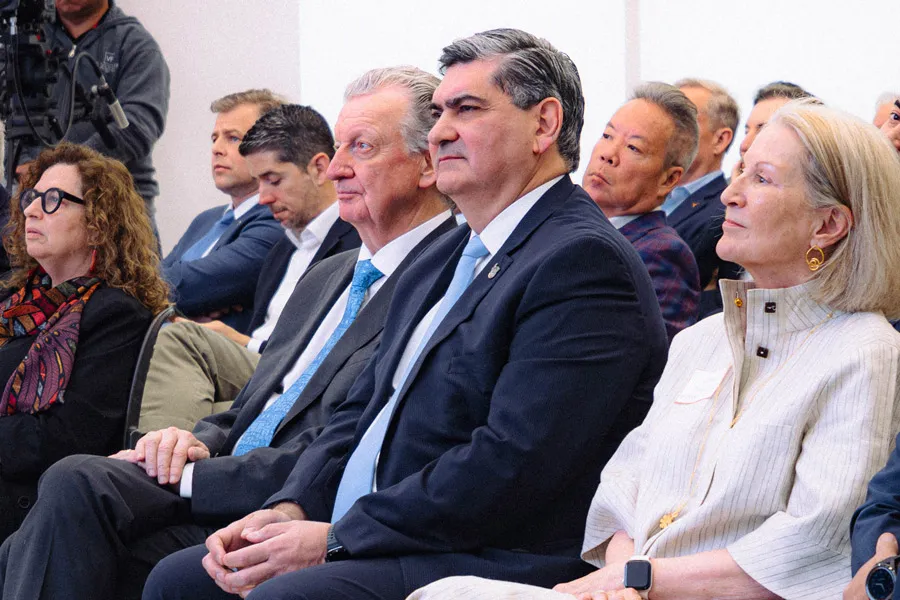
2. How does stress influence the metabolic process in Mexican adults, and how does this change throughout their lives?
Innovation: Combining lifetime experience, stress, and demographics with the biological data collected in Mexico to understand health outcomes.
“We’re going to combine lifetime experience, stress, and demographics with the biological data collected in Mexico to understand health outcomes,” added Alexandro.
3. How can we help obese Latino adolescents to lose weight through a scalable intervention?
Innovation: Developing an online scalable intervention that is personalized for young Latinos and their familial needs.
“In this project, we really want to help obese Latino adolescents to lose weight with an intervention that is scalable, utilizes interdisciplinary knowledge, and leverages the nutritional, psychological, and familial needs of these young people,” said Dr. Gabriela Livas.
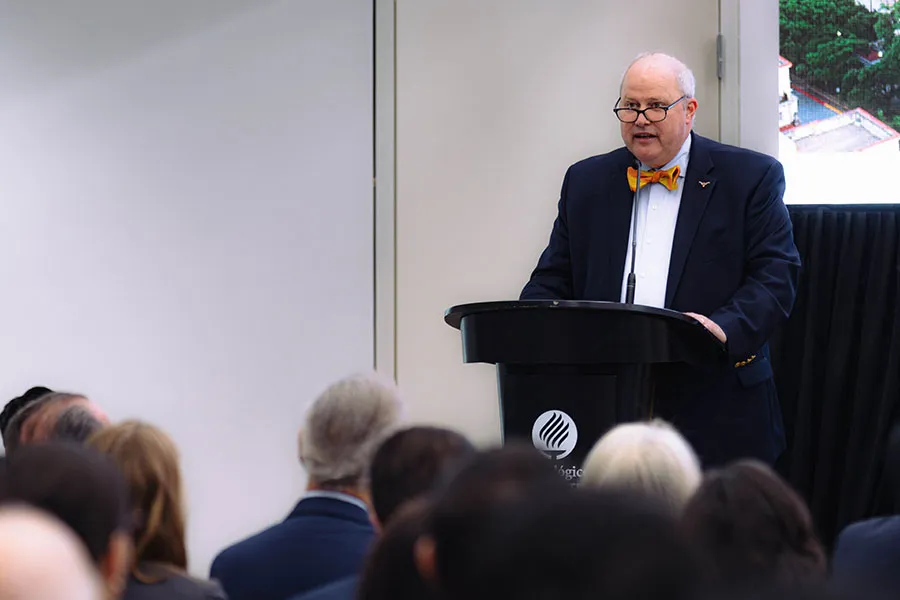
International collaboration
Luis Herrera, Dean of TecSalud’s School of Medicine and Health Sciences, and Andreas Matouschek, Interim Dean of the College of Natural Sciences at the University of Texas at Austin, spoke of the importance of international scientific collaboration.
“The University of Texas at Austin offers a unique ecosystem to promote health research.
Interdisciplinary collaboration, world-class facilities, diverse research centers, and access to data and different resources are key elements that provide a great opportunity to obtain a magnificent result through this collaboration,” said Matouschek.
ALSO READ:

